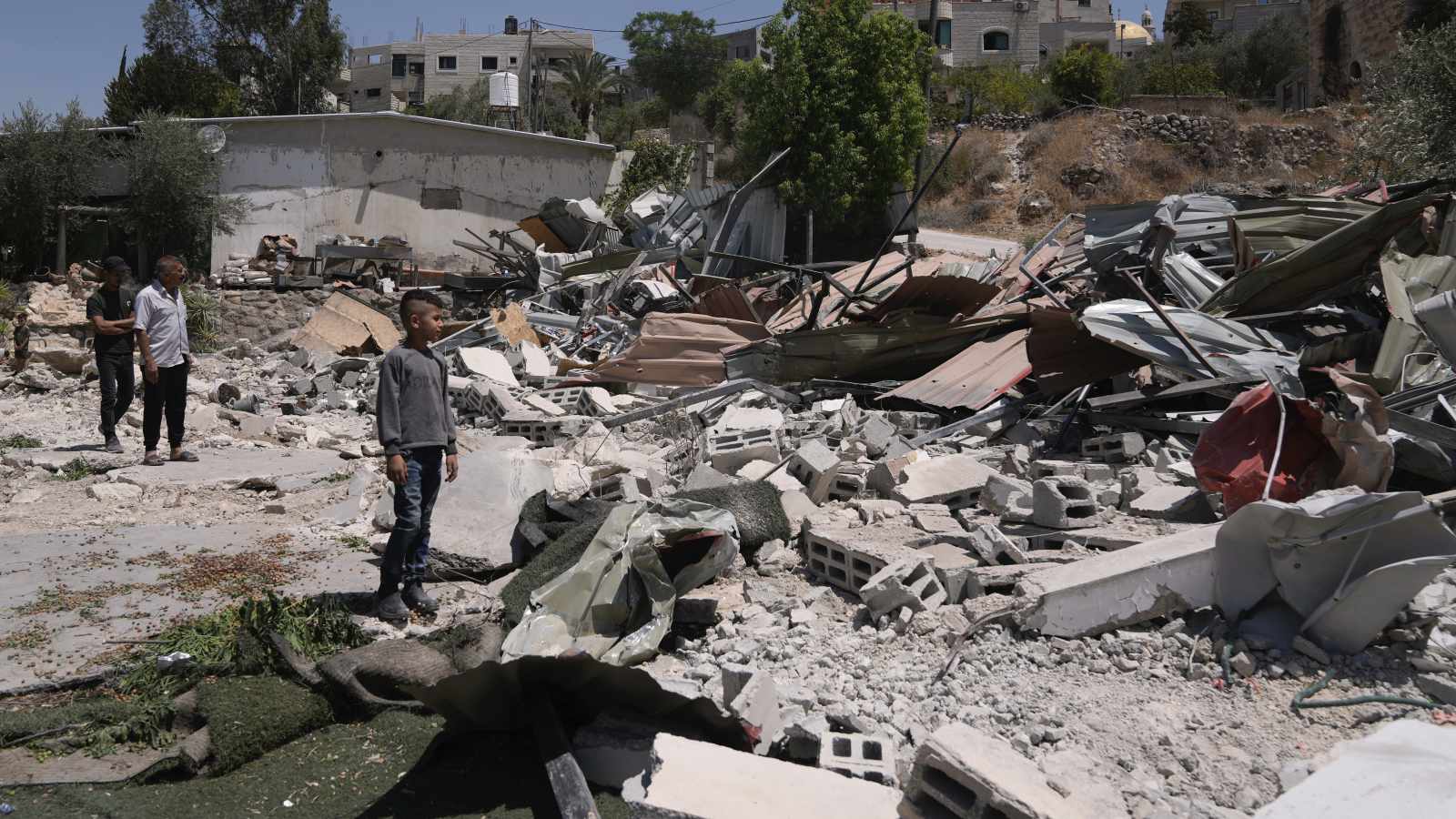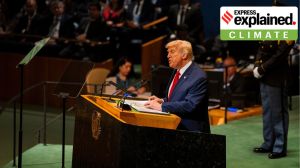Stay updated with the latest - Click here to follow us on Instagram
What is West Bank settlement project, and how it blocks prospects of a Palestinian state
The global community generally considers such settlements to be illegal and a hindrance to a peace deal between Israel and Palestinian.
 Palestinians check the rubble of a house after it was demolished by the Israeli army in the West Bank village of Beit Sira, near Ramallah, Tuesday, Aug. 19, 2025. (AP Photo)
Palestinians check the rubble of a house after it was demolished by the Israeli army in the West Bank village of Beit Sira, near Ramallah, Tuesday, Aug. 19, 2025. (AP Photo)Israel on Wednesday approved the controversial West Bank settlement project that had been on hold for two decades amid fierce international opposition. The global community generally considers such settlements to be illegal and a hindrance to a peace deal between Israel and Palestinian.
What is West Bank settlement project?
The West Bank settlement project is a venture to set up additional housing units at the already occupied, yet sensitive, tract in the West Bank: E1 or East One. The region lies just at east of Jerusalem, which is considered as capital by both Israelis and Palestinians.
A defence ministry committee of Israel Wednesday approved plans for 3,401 homes in E1 which covers about 12 sq km (4.6 sq miles) between East Jerusalem and the settlement of Maale Adumim. This would effectively cut off the occupied West Bank from East Jerusalem and divide the region in two.
The defence ministry body also sanctioned 342 units in the new settlement of Asael, a former outpost in the southern West Bank. This was built without government authorisation but was later made legal under Israeli law in May.
The demographics of West Bank
According to BBC, Israel has built about 160 settlements housing 700,000 Jews since 1967 Middle East war when it had occupied the West Bank and East Jerusalem. Along with Gaza, Palestinians want these two regions to build their much hoped-for future state. An estimated 3.3 million Palestinians live alongside the Jews. Israeli troops regularly raid the Palestinian cities and restrict the movement of the Palestinians. The Israeli settlers in the West Bank exercise voting rights in Israeli elections, while their Palestinian neighbours have no say in them, The New York Times reported.
Legal or Illegal: Why has the project been delayed and why it has it been approved now?
Successive Israeli governments have allowed the settlements on the West Bank to grow. However, the approval of the E1project was delayed for over two decades following pressure from United States and opposition from the international community.
The settlements are considered illegal under international law — a position supported by an advisory opinion of the International Court of Justice last year, the BBC reported.
Despite considerable opposition, the expansion has risen sharply since Prime Minister Benjamin Netanyahu returned to power in late 2022 as well as the start of the Gaza war in October 2023. In addition to this, Trump administration in the US has also been far less critical of the settlements than the previous dispensations, or most of the global community, that generally considers them to be illegal.
Hence, the approval of the West Bank project came shortly after a growing number of countries expressed their intention to recognise a Palestinian state, which Israel has denounced. Far-right Finance Minister Bezalel Smotrich, who unveiled the settlements last week, said the idea of a Palestinian state was “being erased”.
How does this project come in the way of a Palestinian state?
“The Palestinian state is being erased from the table, not with slogans but with actions,” the BBC has quoted Smotrich as saying. “Every settlement, every neighbourhood, every housing unit is another nail in the coffin of this dangerous idea.”
He also urged Netanyahu to “complete the move” and formally annex the West Bank.
Critics of the E1 project have warned that this plan, if implemented, would effectively hinder the establishment of a Palestinian state as it would cut off the north of the West Bank from the south. It would hence prevent the development in the centre of a Palestinian urban area connecting Ramallah, East Jerusalem and Bethlehem.
— with inputs from BBC and New York Times
- 01
- 02
- 03
- 04
- 05































